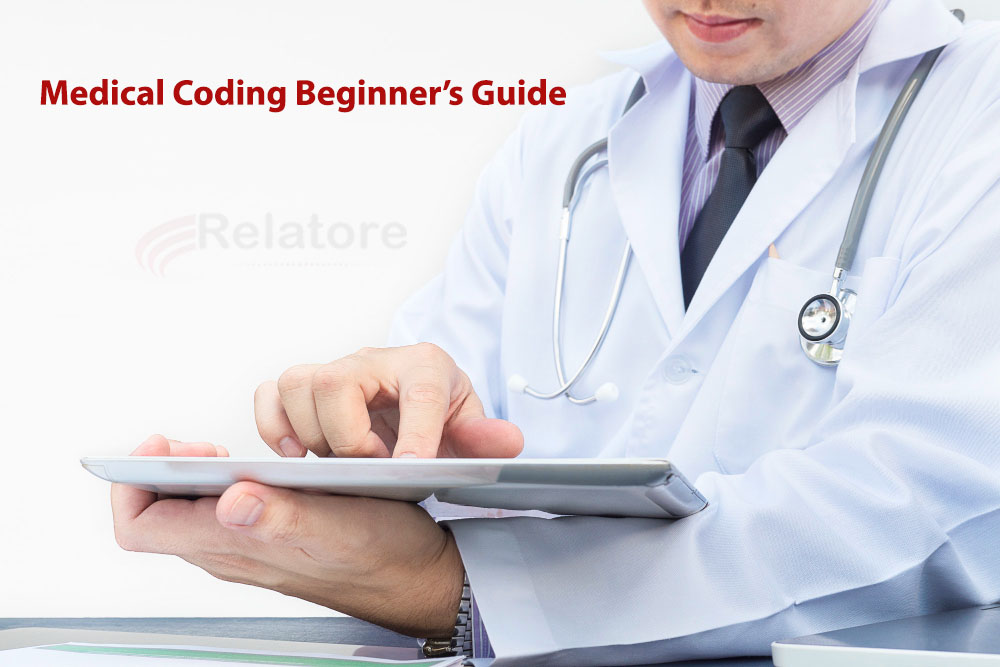
Introduction
Medical coding is a crucial aspect of the healthcare industry, playing a significant role in translating medical diagnoses, procedures, and services into universally recognized alphanumeric codes. These codes are essential for various purposes, such as medical billing, insurance claims, and data analysis.
In this beginner’s guide, we will explore the basics of medical coding, the different types of coding, and the steps involved in coding a medical record.
What is Medical Coding?
Medical coding involves the transformation of medical diagnoses, procedures, and services into standardized codes. These codes are used to document patients’ medical encounters and ensure accurate billing and reimbursement. The codes used in medical coding are part of specific code sets, such as ICD-10-CM, CPT, and HCPCS Level II.
The Importance of Medical Coding
Accurate medical coding is crucial for healthcare providers, insurance companies, and patients. Proper coding ensures that medical services are billed correctly and that healthcare providers are reimbursed appropriately. It also allows for better data analysis, which can lead to improvements in patient care and healthcare management.
The Different Types of Medical Coding
ICD-10-CM Coding
ICD-10-CM (International Classification of Diseases, 10th Revision, Clinical Modification) is a coding system used to classify and code diagnoses in the United States. It provides a standardized way of documenting various medical conditions, facilitating efficient communication between healthcare providers, insurance companies, and government agencies.
CPT Coding
Current Procedural Terminology (CPT) coding is used to describe medical procedures and services provided by healthcare professionals. CPT codes are developed and maintained by the American Medical Association (AMA) and are widely used for billing purposes.
HCPCS Level II Coding
The Healthcare Common Procedure Coding System (HCPCS) Level II coding is specifically utilized for items, supplies, and services that are not covered under CPT codes. These codes are essential for reporting items such as ambulance services, durable medical equipment, and certain drugs.
The Role of a Medical Coder
Medical coders play a vital role in the healthcare industry, ensuring that medical records are accurately coded and that healthcare providers receive appropriate reimbursement for their services.
Skills Required for Medical Coding
To excel as a medical coder, one must possess excellent analytical and technical skills. Attention to detail, medical terminology knowledge, and a thorough understanding of coding guidelines are also essential.
Certification and Training
Many medical coders pursue certification through organizations like the American Academy of Professional Coders (AAPC) or the American Health Information Management Association (AHIMA). These certifications validate the coder’s expertise and enhance career opportunities.
How Medical Coding Works
Assigning Codes
When a patient receives medical services, the healthcare provider documents the details of the encounter. The medical coder then reviews the documentation and assigns the appropriate codes based on the provided information.
Medical Coding Systems
As mentioned earlier, medical coding relies on different code sets, such as ICD-10-CM for diagnoses and CPT for procedures. These code sets are regularly updated, and coders must stay current with the changes to ensure accurate coding.
The Steps Involved in Coding a Medical Record
Properly coding a medical record involves several essential steps. Let’s explore them in detail.
Patient Registration
The coding process begins with patient registration. Accurate patient information is crucial for proper coding and billing.
Transcribing Medical Reports
Medical coders must review medical reports carefully and transcribe the relevant information to assign the correct codes.
Code Selection
Based on the documented medical services, the medical coder selects the appropriate codes from the relevant code sets.
Review and Validation
After coding, the records undergo a thorough review and validation process to ensure accuracy and compliance with coding guidelines.
Submission and Reimbursement
Once the coding is complete and validated, the coded information is submitted to insurance companies for reimbursement.
Common Coding Mistakes and How to Avoid Them
Coding errors can have significant consequences, including claim denials and payment delays. It’s essential for medical coders to be aware of common coding mistakes and take measures to avoid them.
The Future of Medical Coding
As technology progresses, medical coding is constantly evolving as well. Electronic Health Records (EHRs) and Artificial Intelligence (AI) are expected to play a more prominent role in the coding process, improving efficiency and accuracy.
Conclusion
In conclusion, medical coding is a vital process that ensures accurate documentation, billing, and reimbursement in the healthcare industry. Properly trained and certified medical coders are essential for maintaining the integrity of medical records and facilitating smooth healthcare operations.
FAQs
Q1. What qualifications are required to become a medical coder?
To become a medical coder, one typically needs a high school diploma or equivalent. Pursuing additional education in medical coding and obtaining relevant certifications can enhance career prospects.
Q2. How often do coding guidelines change?
Coding guidelines can change periodically. It’s crucial for medical coders to stay updated with the latest changes to maintain accurate coding practices.
Q3. Can medical coders work remotely?
Yes, many medical coders have the flexibility to work remotely, especially with the increasing use of electronic health records and online coding systems.
Q4. Is medical coding a challenging career path?
Medical coding can be challenging, as it requires a keen eye for detail and adherence to complex coding guidelines. However, with the right training and dedication, it can be a rewarding career.
Q5. How does medical coding contribute to patient care?
Accurate medical coding ensures that healthcare providers have access to comprehensive patient data, leading to improved patient care and better treatment outcomes.
